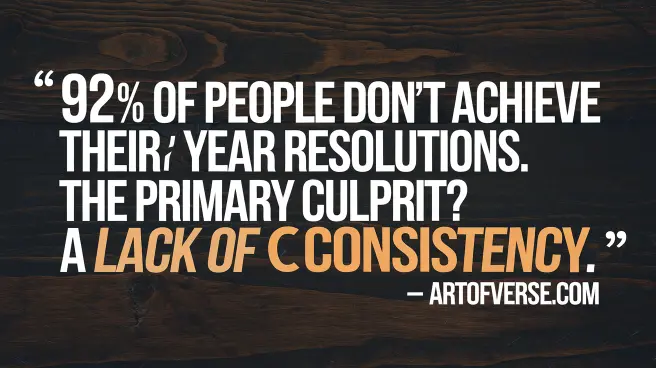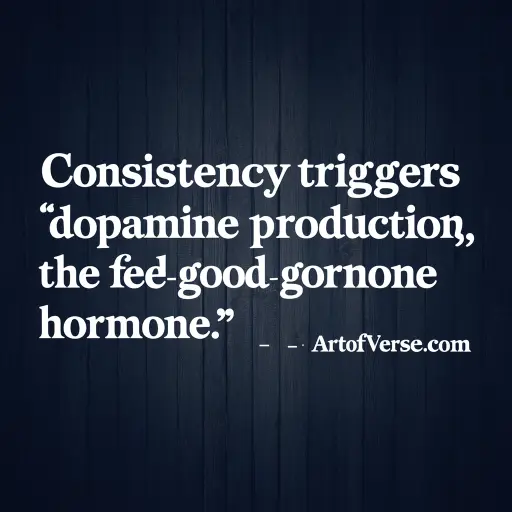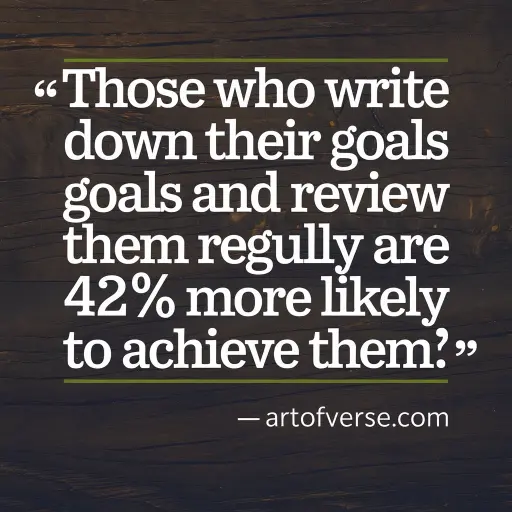Consistency is the key to unlocking the treasure chest of your dreams. Imagine you’re on a ship sailing through choppy waters, and your goals are the destination. Without consistency, the rudder, you’re just adrift, tossed around by whims and weather. That’s why how to be consistent with your goals is not just beneficial but imperative.
Let’s explore how you can use consistency to supercharge your journey toward your ambitions. We’ll dive deeper into strategies and mindsets that have helped countless individuals, supported by intriguing facts and stats, to illustrate why sticking to your objectives is non-negotiable if you want to achieve greatness. So, grab your compass, and let’s navigate these waters together.
Table of Contents
Understanding the Power of Consistency
Before cracking the code on how to be consistent with your goals, it’s essential to understand why consistency matters so much.
- Foundation of Achievement: Consistency is the invisible threads that weave our daily efforts into the tapestry of success.
- Trust Building: Being consistent reinforces trust in your abilities. Just like clocks that tick like clockwork, consistent efforts reinforce reliability, with your psyche and with others.
- Momentum Creation: When you show up every day, you build an unstoppable momentum—think of it as a snowball rolling downhill, picking up size and speed.
- Stretching Limits: Consistent actions edge out your comfort zone and push personal boundaries.

Studies reveal that nearly 92% of people don’t achieve their new year resolutions. The primary culprit? A lack of consistency.
Also Read: Discipline Beats Motivation: How Consistency Outshines Inspiration
Recognizing Barriers to Consistency
Many individuals aim for the stars but stumble upon common obstacles:
- Lack of Clear Goals: You can’t stick to a plan if you don’t know what it’s meant to achieve.
- External Interruptions: Life throws curveballs—unexpected challenges can derail intentions.
- Perfectionism: Waiting to act until conditions are ‘perfect’ is a surefire way to stall progress.
- Fear of Failure: Concern about the consequences of failing can prevent taking consistent action.
Identifying these barriers is the first step in learning how to be consistent with your goals.
Strategies for Consistently Achieving Your Goals
Ready for a game plan? Here are bulletproof strategies to help you gain traction and not lose sight of your goals:
1. Define Clear Objectives
Start with mapping a lucid picture of what you want to achieve. SMART goals (Specific, Measurable, Achievable, Relevant, Time-bound) help in providing a roadmap to consistent actions.
2. Break Down Tasks
Chunk large objectives into smaller, manageable tasks. Micro-goals might feel like baby steps, but they ensure progress without overwhelming you.
3. Routine Development
Crafting a daily routine cultivates an environment ripe for consistency. Just like the hands of a clock go round in an unchanging rhythm, rituals signal your brain it’s time to focus.
4. Olympian Mindset
Ever notice how athletes relentlessly train every day? Adopt this Olympian mindset of unwavering discipline and hard work.
5. Accountability Partners
Engage someone you respect and look up to keep you accountable. Regular check-ins and feedback loops ensure you’re on track.
6. Celebrating Small Wins
Recognize and appreciate minor victories as they lead to bigger accomplishments.
7. Adapting Over Perfection
Strive for progress, not perfection. Adaptability is key if you encounter setbacks—re-strategize, implement changes, but don’t stop.
The Neuroscience of Consistency
Studies reveal how routine and consistency affect brain activity. The basal ganglia, part of the brain crucial for habit formation, lights up when we perform consistent actions.
According to research, habits account for roughly 40% of daily activities. It’s a testament to the power of embedding consistency in everyday actions.
When we stick to our goals, the prefrontal cortex, responsible for decision-making and focus, becomes more efficient.

Further neuroscience insights show that consistency triggers dopamine production, the feel-good hormone, which in turn fuels your motivation tank.
Psychology: Make Consistency Your Ally
The psychological impact of being consistent extends beyond immediate benefits. The mere act of being consistent shifts your identity – from someone trying to achieve something to someone who does achieve it.
According to the Consistency Theory, individuals tend to seek consistency in their beliefs and behaviors. Exploiting this natural propensity can reinforce sticking to your goals.
Psychologist William James elucidated this by noting,
“Sow an act… reap a habit… sow a habit… reap a character… sow a character… reap a destiny.”
— Psychologist William James
Real-Life Examples of Consistency
Famous personalities have harnessed consistency to skyrocket their paths to success:
“Training consistently with unwavering discipline saw him rule the swimming world.”
— Athlete: Michael Phelps
“A regimen of writing ten pages every day made King one of the most prolific writers of our time.”
— Writer: Stephen King
“A steadfast and methodical approach to investing, day in and day out, built his empire.”
— Entrepreneur: Warren Buffet
These exemplars highlight that how to be consistent with your goals isn’t just theory—it’s the groundwork for monumental achievements.
Overcoming Setbacks
Professionals often face moments of doubt. But learning how to navigate through the inevitable setbacks while maintaining consistency is critical.
- Revisit Goals: Reassess objectives and simplify if they seem too daunting.
- Reflective Learning: Delve into failures to extract learnings, avoiding repetition of mistakes.
- Re-ignite Motivation: Seek inspiration from mentors, books, and personal reflections.
An interesting fact—research published by the American Psychological Association found that individuals who exhibit resilience are more successful in maintaining consistency after setbacks.
Digital Tools to Boost Consistency
Harness the power of technology to remain steady in your ambitions:
- Goal Setting Apps: Platforms like Trello or Asana for task management to keep your daily goals clear.
- Habit Trackers: Applications like Habitica or Strides, which gamify habit tracking and provide visual progress indicators.
- Mindfulness Apps: Tools like Headspace encourage the habit of mindfulness, aiding in reducing stress and increasing focus.
Leveraging these tools can make achieving your goals a less daunting task, converting your dreams into achievable destinations by strengthening daily consistency.
Measuring Progress
Knowing how to be consistent with your goals also involves measuring what’s working, and what isn’t:
- Regular Reviews: Schedule monthly reviews to chart progress, noting both achievements and areas requiring adjustments.
- Data-Driven Decisions: Use metrics to guide decisions, rather than perceptions or biases.
- Feedback Loop: Regular inputs from peers or mentors can act as catalysts in accelerating goal achievements.

A study by the Dominican University of California illustrated that those who wrote down their goals and reviewed them regularly were 42% more likely to achieve them.
Consistency as a Lifestyle
By now, it’s apparent that learning how to be consistent with your goals is less about hitting the finish line and more about embracing consistency as a lifestyle.
When consistency transcends into personal values, it builds character, shifts perspectives, and ultimately, transforms lives.
The beauty of life lies not only in reaching milestones but in consistently striving and evolving, making small strides without waiting for perfection.
So, embark on this journey with persistence as your ally, and watch as the magic of consistency unfolds—transforming dreams into reality, one day, one habit, one consistent action at a time.

